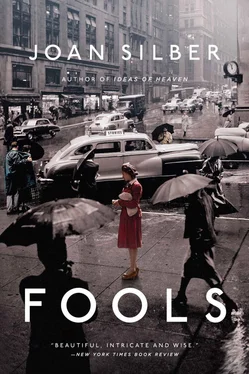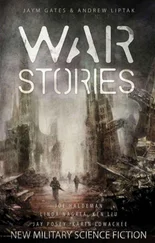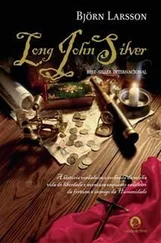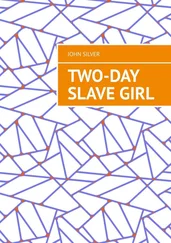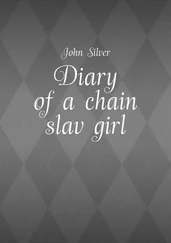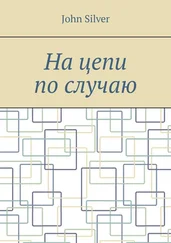Once, when I was complaining about a sudden streak of sultry weather in May, Ted said, “My father always liked the heat.” I had stopped feeling that he held his father’s dying against me, and I had gone over to another feeling, an envy of what Ted knew about death.
“You should like hot weather, then,” I said. “As a tribute.”
He nodded at this, he liked my making room for his ceremonies of memory.
We did a lot of necking. I was only sixteen, I didn’t think — and he didn’t demand — we would get into actual sex, but we hovered in an exquisite border area, became adepts in its every shading of excitement. How slow and patient we were then, how attenuated in our efforts. It was the sweetheart desire of innocents, for all its shocks and grunts and revelations.
He was two years ahead of me in school, and I did not have a good feeling about his graduating, though I gave him a very nice edition of Tolstoy’s Resurrection for a present. I didn’t like the way he thanked me for it by saying, “I only hope I’ll have time to read it.” He was going to City College, just a subway ride uptown, but I had reason to fear he’d slip away from me.
And I wasn’t wrong. He took up with some female from his Western Civ class, and, then more fatally, with a blonde who worked in the library. He decided that we should no longer “fence each other in” and I was “free” to date other people. During this speech, he looked stern and aggrieved at having to speak at all. “Thank you for the blessing of liberty,” I said. Sarcasm was not even slightly effective.
What could I do? I wanted to fight for him, fight hard and dirty if I had to. I had my pride and my upbringing, but I wasn’t above using Maxie. Nothing sneaky, but I goaded her into inventing mean nicknames (Frog Eyes, Miss Dainty) and using her gifts of mimicry after the poor girlfriend paid a family visit. Maxie claimed the girl had actually said, “I adore pot roast,” and Maxie loudly adored everything in sight for weeks after.
My job was to be the true blue one. If I ran into him (Maxie aided this), I was friendly, forthright, calm. “Great to see you, Ted. Everything okay?” Ever loyal. Very, very warm.
My mother did not admire my scheming. “What can you gain by trickery?” she said.
“It’s not tricks,” I said. “And all is fair in love and war.”
“Oh, Louise,” she said. “Can you hear yourself, can you?”
I spent two years of my adolescence gutted by the outrage of being without him, eaten up with agonized guesses about my future. It was constantly clear to me what I had to have, every cell in my body was fixed in certainty. I had no way to know whether I would win. All the nights of imagined raptures, could they be for nothing? My friend Ruthie, who didn’t have anything going yet, envied my suffering, and probably thought it was better to have loved and lost than never to have loved at all, but I didn’t. And I didn’t have a plan B. When Ruthie said, “You could get Alan Brody to like you if you wanted,” I said, “No! Thank you, no.” No halfway measures, no compromises. I knew what I knew. I shouldered my burden, I had been bred to staunchness.
Senior year I worked after school at a bakery in the neighborhood. It was called Mrs. Plymouth’s, a homey place with mile-high coconut cakes and fudge-filled yellow layers. People still remembered when butter and sugar had been rationed in the last war years, and they liked the party-prettiness of what we sold. My earnings went to our ailing household budget; my father had found a job at a print shop, but we were always behind on our bills.
I told my mother I could bring in more money as a file clerk, once I was out of school. Plenty of girls as smart as I was had jobs like that, and (I didn’t say this) I hoped to get married very soon anyway. Neither of my parents had been to college, but my father had his heart set on my getting a degree, and his bloodied heart was sacred to all of us. My mother thought I should go to Hunter (all girls) and not City, where I would run into we-knew-who.
I ran into him anyway, in the bakery, where he pretended to be surprised to find me. “Hey!” he said. “What’s up?”
“Couldn’t be better,” I said. “This is such a good time for me. I think I’m going to Hawaii. To help with the big dockworkers’ strike.”
“Hawaii! How will you get there?”
“There are ways. I have friends.”
“What friends?”
“Oh, you know. So school is good?”
I had been raised to always, always be truthful, and I refused to say more, knowing I was not a skillful liar. “Forget I mentioned it,” I said. “Okay? Please.”
“Hawaii, huh?” he said.
“Forget I said it.” I gave him my sunniest, sweetest look. “Everything good with you?” And I went off to wait on someone else.
I didn’t have wiles, not really, but I knew that woe and supplication had no sex appeal. He phoned me that night, trying to find out who I was seeing. I let him talk me out of my fake Hawaii plan, and that was the start of our revival.
No triumph could have been purer, more glorious, than those early days of having him back. I was smug with victory, I went around giving my sister the most platitudinous advice about love and life: “If it’s meant to be, it happens,” “When you know, you know.” His mother was less than pleased about me and tended to refer to my parents as Reds, no matter how many times I explained they were anarchists, not Marxists — the black flag, not the red flag! — and their actions these days were mostly down to picketing with labor unions, which was perfectly lawful. I did go out on picket lines with them (we’d always done this as a family), but I wasn’t big on chanting. “They’re just slogans!” I said.
“What do you have faith in?” my mother said.
The truth was that I wanted to be ordinary. I wanted the coziness of private life. Why should that be out of reach, why couldn’t I have that?
“I have faith in people ,” I said.
“What does that mean?” my mother said. “You think you can do without ideas but you can’t.”
I lasted through a year and a half of college, and then Ted and I were married. It was his idea as much as mine — his dating life had scared him about the risks of ending up with someone shrill or cloying or shallow or stupid. I was at the very least none of those things. Once we were engaged, we had sex of a lavish and reverent kind. He looked at me very intently afterward, his eyes deep in their sockets, without his glasses, and his features softened and slightly swollen, an almost-naked face. I was dazzled myself, but I had been dazzled before we even did anything.
My parents were against my marrying Ted — my mother said, “You’re selling yourself to the first bidder,” a surprisingly bitter thing for her to say — but they put together a decent wedding for me, not fancy but with bouquets of pink carnations and a real cake from the bakery. Everyone was crowded into our living room, and we had a Unitarian minister, which satisfied no one, and I wore a dress I’d sewn from a pattern, with a scalloped neck and a gathered skirt, in dotted swiss, white on white. I looked good in that dress.
Ted had managed to graduate a semester early, and the city was in bleak winter. We moved into a tenement on the Lower East Side, with crappy heating, and I worked very hard to make it nice. We paid the rent from Ted’s new job teaching English in a high school, and I liked all the budgeting and household cleverness.
No one in my family admired the drapes I made for the windows, a tasteful slubbed weave in creamy beige. “I can see a lot of effort went into this,” my mother said, not that nicely.
Читать дальше
